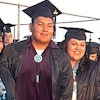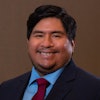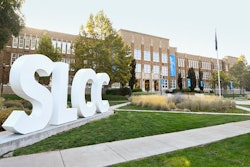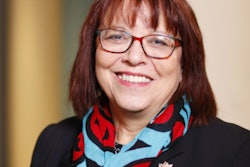Pointing to a new, 22,000-square foot administrative and classroom facility on the Okmulgee, Okla., campus of the College of the Muscogee Nation, Robert Bible is candid: “We wouldn’t have this building if it weren’t for gaming revenue.” The structure, unveiled late last year, cost approximately $7.5 million to complete, of which Bible says about $800,000 came from the U.S. Department of Housing and Urban Development and another $725,000 came via the U.S. Department of Energy.
“But the rest all came from the gaming revenue that the Creek Nation allotted to us,” he says. “Our college is officially funded by the Creek Nation. Their gaming revenue goes into an account, and from that they fund us. Indian gaming has proven to be a very good thing for all students in Oklahoma, but particularly tribal college students.”
Indian gaming in Oklahoma also has proven to be remarkably popular, even in the face of the national recession. The Creek Nation operates several casinos in the state, the main one being the River Spirit in Tulsa. According to the Indian Gaming Industry Report, tribal casino revenue in Oklahoma grew by nearly 7 percent in 2009 — the most recent year for which statistics are available — reaching a record $3.1 billion in profits. That contrasts dramatically with the national picture, which saw tribal gaming revenue decline by 1 percent, from $26.7 billion in 2008 to $26.4 billion in 2009.
“The performance of any gaming varies depending upon the state and tribe, individual facilities and the different kind of marketing that they may do,” says Dr. Alan P. Meister, the author of the report and an economist with Nathan Associates in Southern California.
“In Oklahoma, they have really upped the quality of their facilities in the last several years,” continues Meister. He recalls that, when he first began compiling his gaming report a decade ago, “There were a lot of small gaming facilities, and many were convenience stores and tobacco stores, truck stops, gas stations and restaurants.”
But now Indian gaming in the state also means the 300,000-square-foot WinStar World Casino, owned and operated by the Chickasaw Nation; the 110,000-square foot Choctaw Durant Casino Resort, run by the Choctaw Nation; and the 110,000-square-foot, Cherokee Nation-run Hard Rock Casino Tulsa. There were 111 Indian gaming facilities in the state in 2009, operated by 39 tribal nations. California was second with 66 Indian casinos.
The casinos also are adding non-gambling revenue sources like luxury hotels, restaurants and bars. In 2009, these additional businesses brought in $442 million, a 12 percent increase over 2008.




















